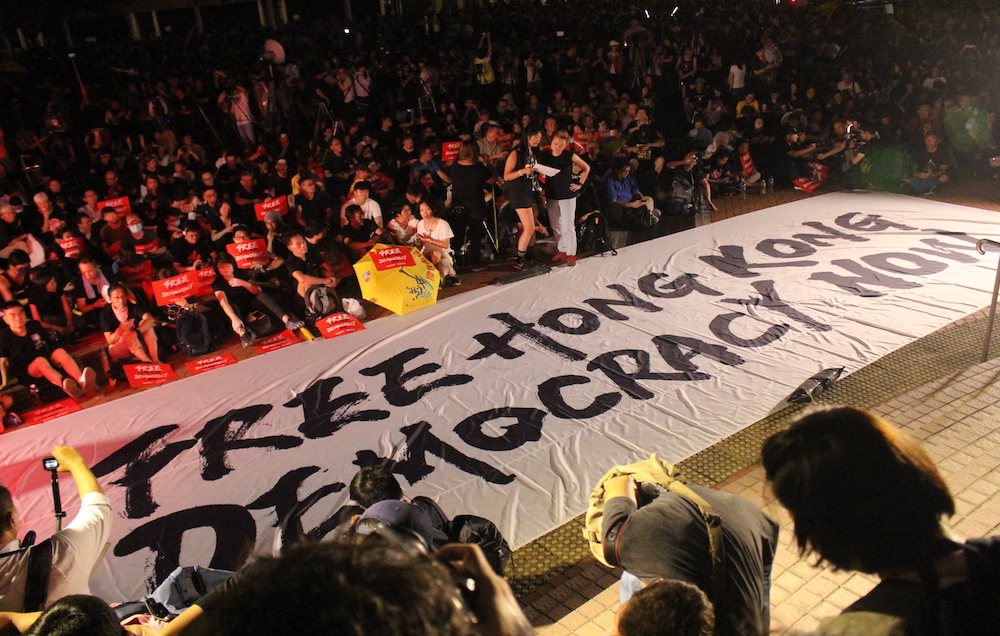Thousands of people crammed into Hong Kong’s Edinburgh Place behind City Hall tonight, most of them wearing black, to urge world leaders to pressure the government — and its handlers in Beijing — to fully withdraw a controversial extradition bill as they gather at the G20 summit in Osaka later this week.
If Hong Kong’s leaders were wondering whether opponents of the deeply unpopular legislation could maintain the momentum of past thousands-strong marches even after Chief Executive Carrie Lam pledged to suspend the bill indefinitely, they received their answer tonight, as the protests appear to have taken on a life of their own.
Though the first record-breaking march against the bill — which would allow renditions to the mainland — merely called for it to be scrapped, the heavy-handed police response to a subsequent demonstration and the government’s perceived inattentiveness to the demands of millions of Hongkongers seem to have turned the movement into a referendum on Hong Kong’s future and Beijing’s role in it.
Tonight’s protest was punctuated with chants of “Free Hong Kong! Democracy Now!” — a message echoed in the signs carried by hundreds of demonstrators.
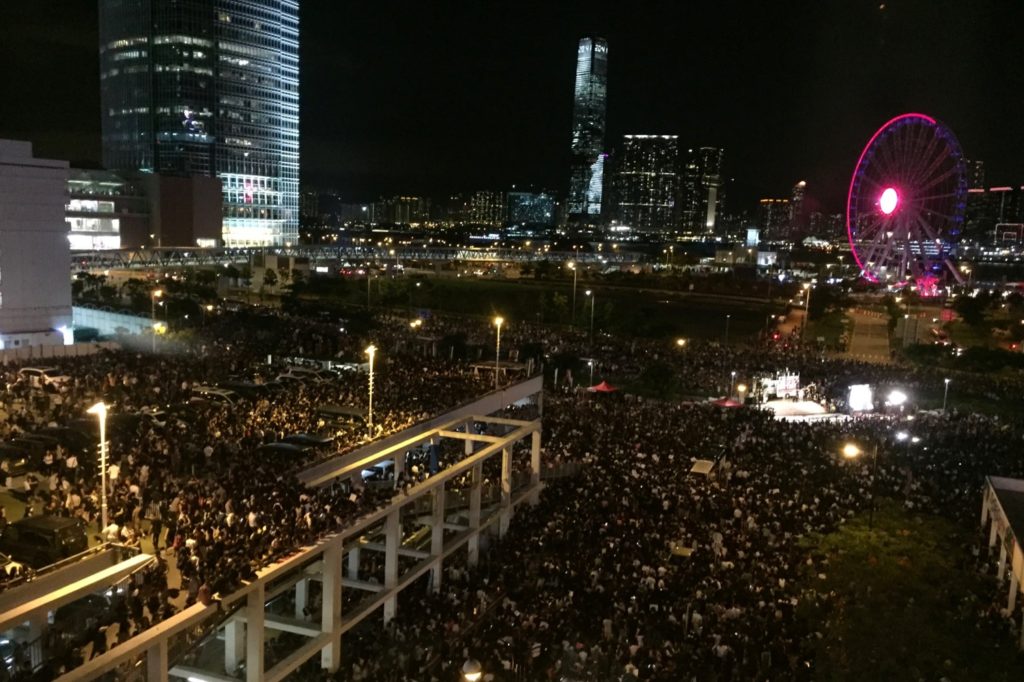
As one protester put it: “We fear that Hong Kong will be just like China.”
The woman, who declined to be named, had attended tonight’s rally with her friend, and both said that they weren’t avid demonstrators.
“We don’t really get to the front, but we are very concerned,” she said. “It’s very hard for us not to notice what’s going on.”
Her friend, meanwhile, who also declined to be named, said that even her parents had voiced concerns over the bill.
“[They] suggested we should migrate to another country,” she said.
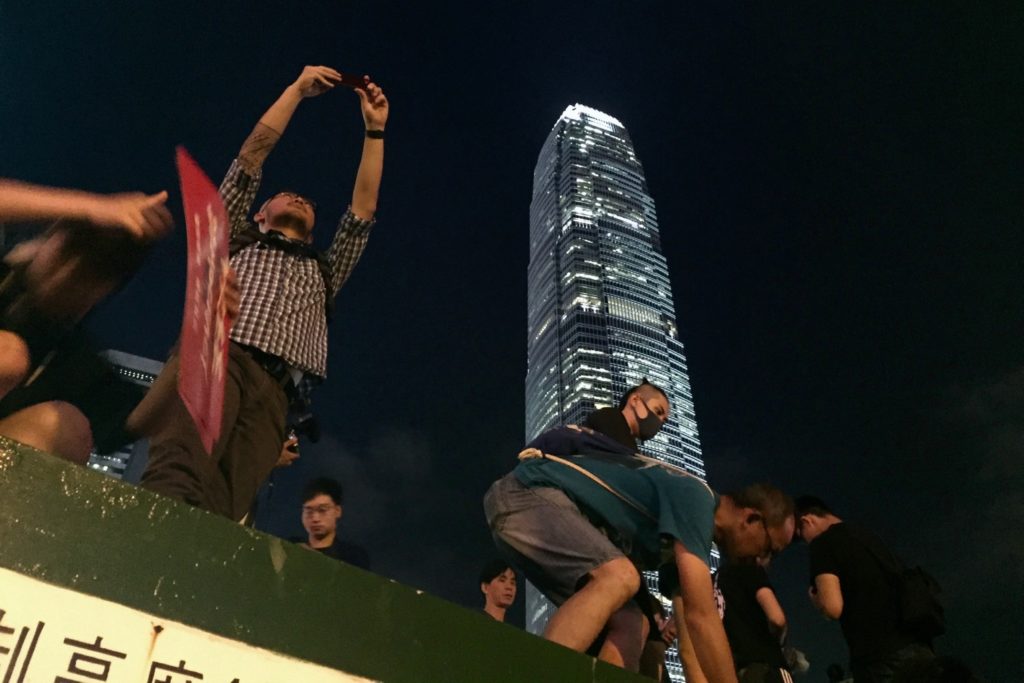
One protester, Hubert Choi, 23, said that the significance of the protests was already “beyond the law that we’re afraid of,” citing specifically what he characterized as a police force run amok.
“They have too much power to control the people,” he said, calling for an independent investigation of the police response to a June 12 demonstration that descended into a chaos, one of the key demands added to the protesters’ list in more recent outings.
He added that he also feared the suspended extradition bill could be revived at any moment, calling its withdrawal his top priority.
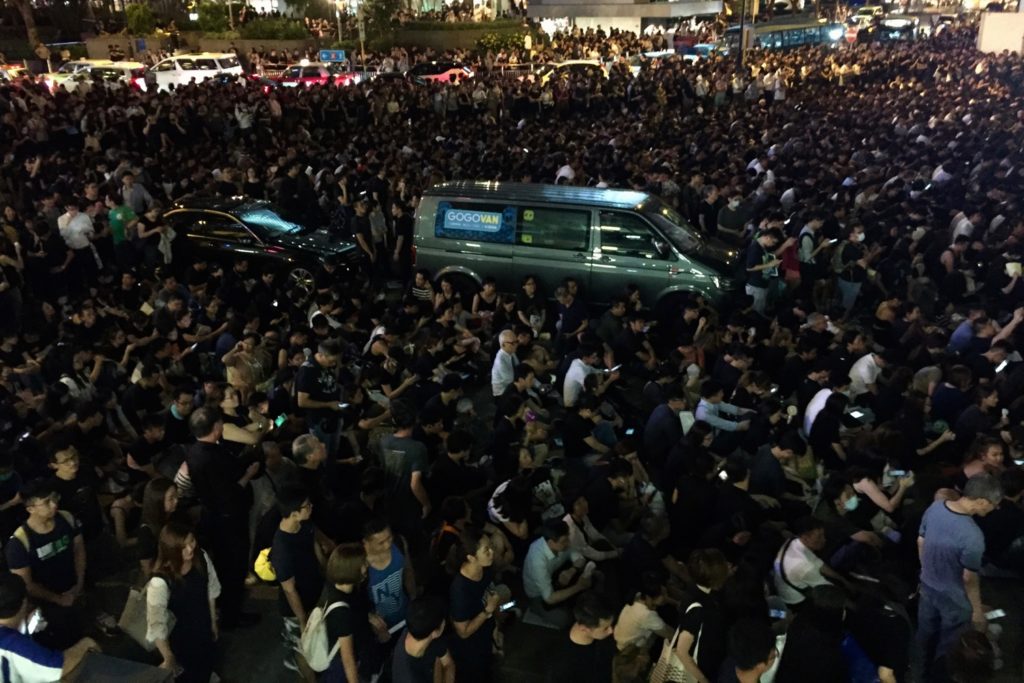
“It has to be on paper,” he said, adding that, nonetheless, he had little hope that would happen. “They will keep suspending the bill until the next government, and push the problem on to the next government.”
If that happened, he said, “I think people, including me, will keep coming to these protests.”
Riven Chan, 34, also said he had no faith that the bill was well and truly dead, and that he would keep coming back until it was, and until all the protesters’ other demands were met, particularly that charges against protesters arrested on June 12 be dropped.
“[It’s] all or nothing for me,” he said. “But I would put the priority on the release [of the demonstrators].”
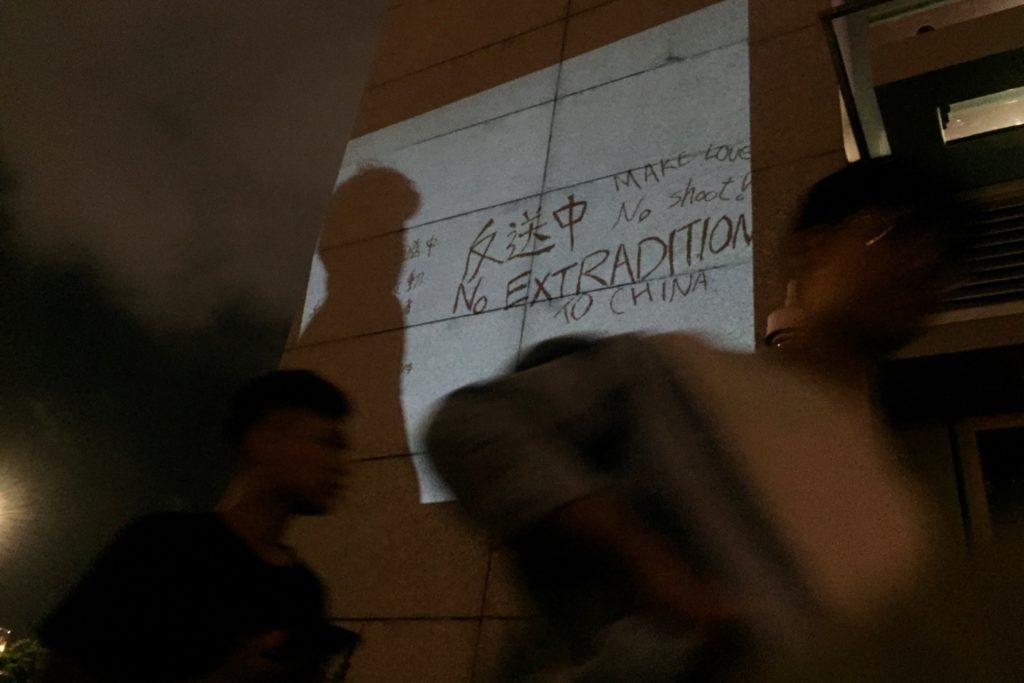
Whether the protesters calls will move leaders as they meet in Osaka remains to be seen. US President Donald Trump is expected to raise the situation in Hong Kong when he meets with Chinese President Xi Jinping, but Chinese officials have also said, point blank, that they will not allow the subject to come up for discussion.
One 71-year-old man, surnamed Chung, was skeptical that the strategy of lobbying world leaders to take up the cause would work.
“I shouldn’t get my hopes up,” he said.
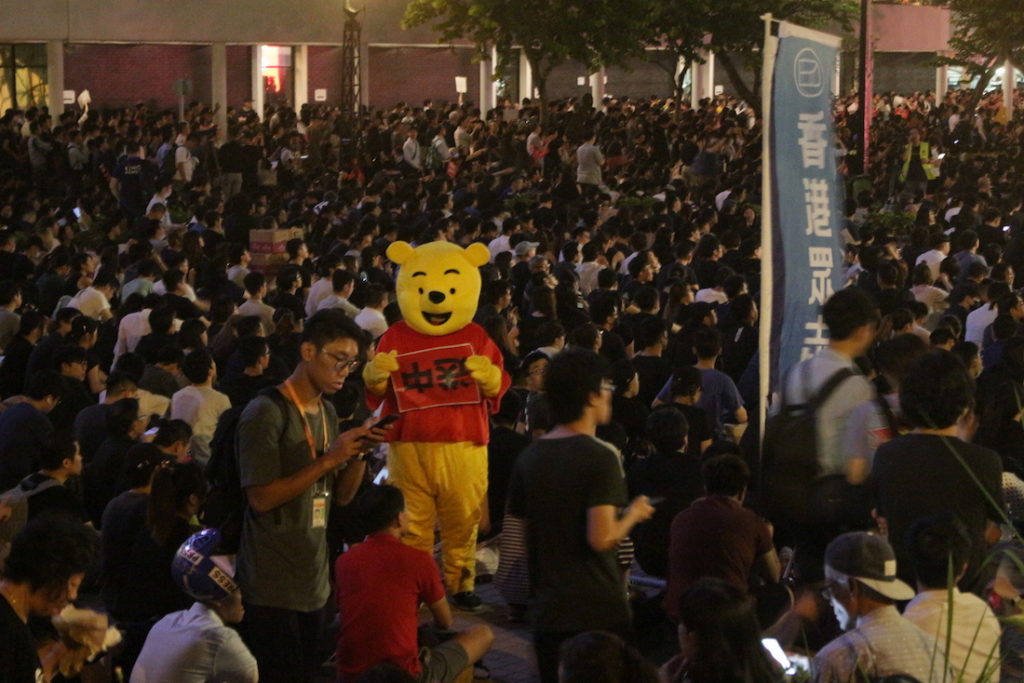
Meanwhile, protests show no sign of slowing. Since Sunday’s millions-strong march against the bill, the protests have largely become the province of students, to the extent that they’re led by anyone.
That has also meant more guerilla-style tactics, including surrounding police headquarters and occupying the lobbies of government buildings, preventing civil servants from going to work and ordinary Hongkongers from carrying out their day to day business.
However, even within the community of protesters there have been concerns that those escalated moves could alienate people who would otherwise support their agenda, a point Hubery Choi acknowledged tonight.
“I think it will somehow negatively affect the whole movement,” he said. “I believe the organizers, or the protesters who did it, already noticed that, and that’s why they apologized in the building yesterday, to show the public that they didn’t meant to do it to bother people.”
“We will keep evolving our protesting skills until our government responds to our demands.”
However, as midnight approached, some protesters were right back at it, blocking Harcourt Road and erecting barricades at the vehicle exit of police headquarters.
More barricade building at a #HK police HQ vehicle exit. pic.twitter.com/hndUcJKw0m
— Brian Kern / Kong Tsung-gan / 江松澗 (@KongTsungGan) June 26, 2019
According to an HKFP report from the scene, by midnight, thousands had surrounded the headquarters again, covering CCTV cameras and using zip ties to block entrances.
